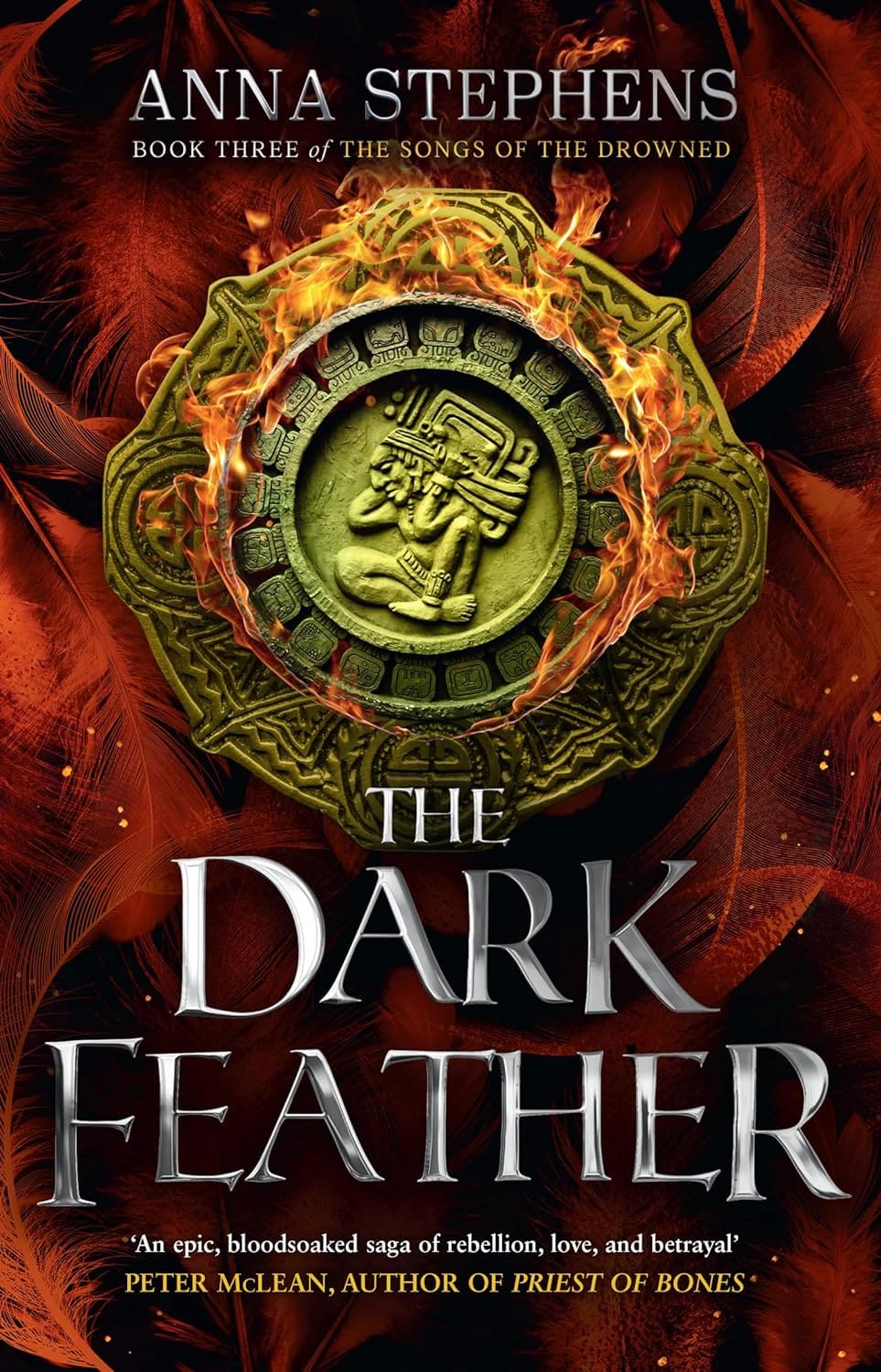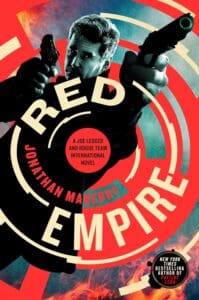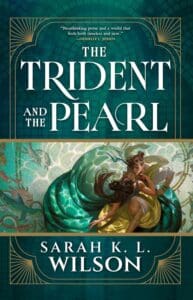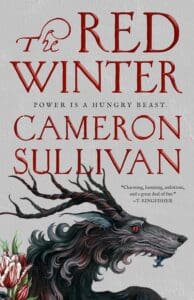
You come at the Song, you better not miss
Synopsis
I’m not giving you a synopsis because the whole point of this review is I want anyone who’s not read the series yet to start now. For an overall series plot, see the review! Yeah, I’m a rebel. Just you try and stop me.
Review
The Dark Feather concludes The Songs of The Drowned series, one of the most remarkable fantasy trilogies of recent times. As I write this review, mere days away from having finished it, I have those telltale signs of having been in the thrall of a great series – grief from not being in the world anymore, a pain of being separated from characters whose every torment (there was lots of this), joy (a lot of this too) and loss (I refer you back to the torment) I have felt over the best part of 2000 pages, give or take.
But writing a review of a third book in a series is a tricky beast and so in what follows I’m not going to spoil anything of book one or two, because I want to speak to people who haven’t read any of this and tell you why you need this firmly lodged in the back of your eyeballs sooner rather than later.
This trilogy takes place in the continent of Ixachipan, a world, as that spelling will clue you in on, heavily inspired by Mesoamerican culture but which Stephens fills out with her own astonishingly detailed cultures and traditions and dress and religions. It’s a world of forests and swamps and hills and one very aggressively imperialist empire called The Empire of Songs, whose society, surprisingly, revolves around something called The Song. The Song is literally in the heads of everyone “lucky” enough to be in the reach of the pyramids that broadcast it and is directed by a holy human called The Singer. The best way to think about it is if you had constantly had tinnitus but it made you feel awesome.
The people of Pecachan, the capital of this Empire, believe that everyone will be better under this Song – kind of like if Rome was a bit communist and had a telepathic bond with its citizens – and they intend to conquer everyone else and make them realise this. Oh and they also sacrifice people to big river monsters, sort of like Creatures from the Black Lagoon, who they worship as gods, and whose songs lure people to their death.
The heroes at first – and as we’ll see in a dark fantasy like this, the idea of heroes is always a nebulous one – are the residents of the last unconquered land, Tokoban. They kill the creepy river gods rather than worship them, and just want to be left alone. Across the trilogy we experience their travails against the Empire of Songs from their multiple points of views, as well as several from within the Empire itself, some who are as villainous as you’d expect and others who are much more complicated than you could possibly imagine.
Now this trilogy brings all the things Anna Stephens first became known for in her initial Godblind trilogy – violence, blood, plot twists, great villains, lots of blood, meaty politics, did I mention the blood, and realistic fight scenes (Stephens has a black belt in Shotokan Karate among other fighting accomplishments including fencing, and the result is some of the most realistic fight scenes in all of fantasy and lots and lots and lots of people being hit in the face really hard).
But what makes it stand as out as one of the best fantasy epics in recent memory is two things.
First, the incredibly nuanced running theme of the sins of Empire, and how hard it is to keep hold of it. The Empire of Songs is endlessly fascinating and painted in astonishingly detail. It’s founded on slaves – yes, this is bad, but hear me out – the idea being that the people who are conquered have to spend a couple of years as slaves and then have their chance to eventually buy their freedom, thus in theory bringing them closer to the song and more loyal. Obviously it’s still a slave society so we’re never under any illusions they’re the good guys, but Stephens knows that the more nuanced the bad guy the more satisfying the lesson, and so the points of view we get from the Empire characters make you understand how real life societies in the past have justified the enslavement of others, and how easily the idea of collective harmony and stability can mask the degradation of other humans. As the trilogy goes on we see the true cost of this expansionist, slave to servant to freeman society and as it (hardly a spoiler) starts to weaken, the true cost of Empire is analysed by Stephens, who gives no answers but asks a lot of questions.
Then there’s the characters who go through… a lot, and who you will come to care about so much that every mental or physical knock they take (I refer you back to the getting hit in the face thing) will be felt by you too. Among these are Essa, a Tokoban fighter whose role in her society is to kill the river monsters, made easy by the fact she is deaf and immune to their siren song; she’s part vicious killer, part loyal friend (and very loyal dog owner), the dilemma between the two a fascinating thread through the series. There’s Tayan, who goes on a journey that is as heart-breaking as it is endlessly fascinating. There’s Enet, second only to the Singer, one of the greatest villains of any fantasy series, whose ultimate reveal makes her a character for the ages. And Ilandeh, a fascinating character who loyalties you are never sure of and whose desire to simply belong somewhere is keenly felt. And there’s Pilos, the general who is very pro-slave yet you will still like (that sounds bad, you’ll understand). Few of these characters (if any) are purely good; all of them you will understand, if a little.
As to the third book, the one I’m ostensibly meant to be reviewing? In the spirit of this entire series spoiler-free review, I will be suitably vague and say it gives everything you want in the third book of a fantasy trilogy, in that it ramps up the emotions and the pivotal moments of decisions for all the main characters to such points of exquisite agony that there’ll be scientists monitoring your heart palpitations by the end of your read in the spirit of research. There’s a bunch of revelations in this book: the nature of the Song itself, just what the creepy river monsters are all about, whose army you can trust, and the endlessly complex and fascinating back and forth politics and army-backstabbing. And then there’s the strange, shamanistic, almost Lovecraftian ideas of the Song and the gods beneath it which are explored to their potential, like a Mesoamerican psychedelic eldritch drug trip.
But ultimately the triumph of this final book is the exploration of the pain of characters who we love but have had to make impossible choices and how – and if – they can survive the consequences of these choices with their soul and their loved ones intact.
You will cry, you will pray they won’t die and, if you’ve read this review properly, then hopefully this series you will buy.









Leave a Reply